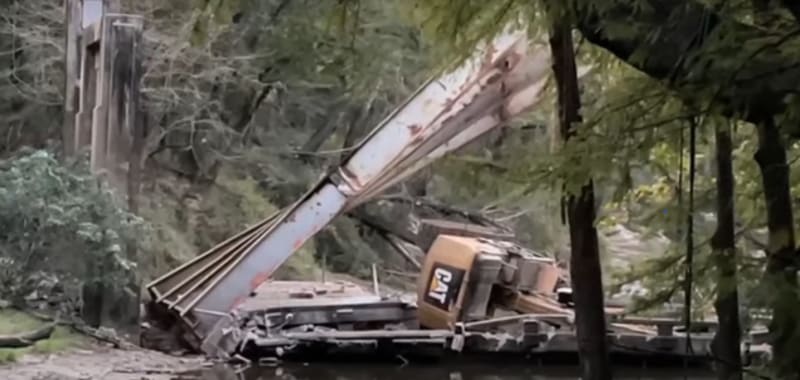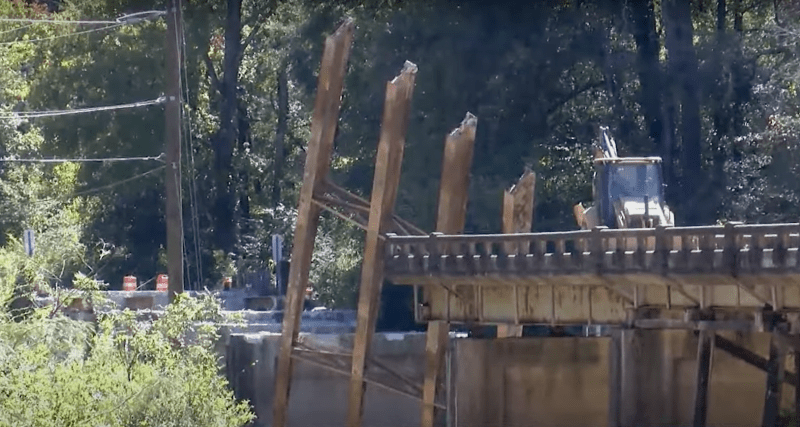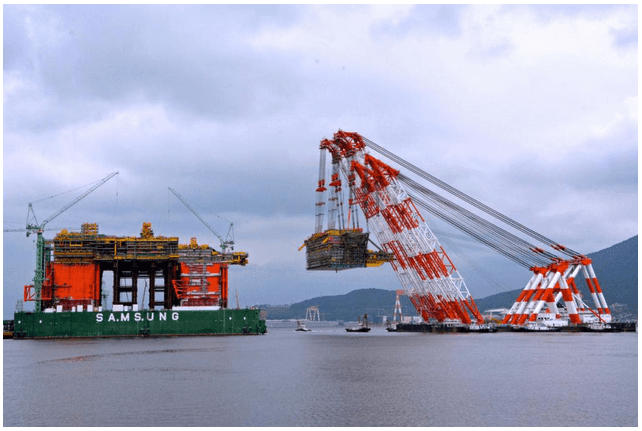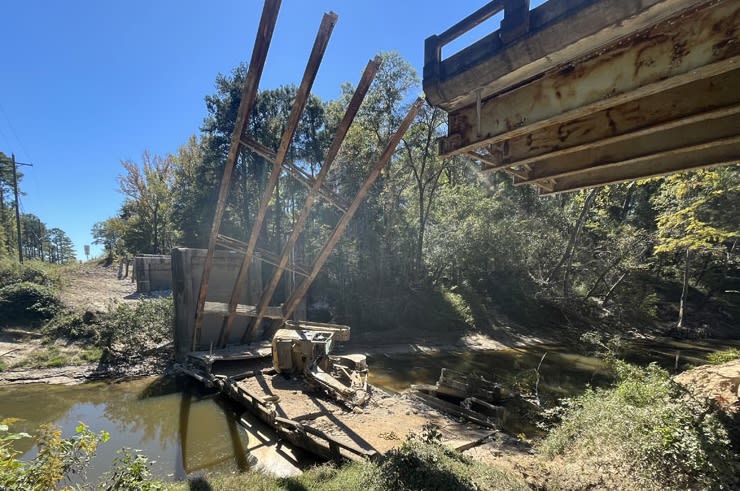1503, exavators are often run back and forth on old bridges as some of the main demo tools, be it for moving mats, other equipment, busting concrete, etc.
A few years back a company I was working for had an issue with a collapse during a demo job. Someone forgot to weld some braces to the span to hold it in place until it was ready to torch it in half and lift the sections it of there. The excavator operator didnt watch his swing, hit the span with the counterweight and sent the span and a crane into the water. No injuries thankfully. All sites started getting inspected and on ours we found similar issues with our temporary platforms only being tacked and no cantilever braces. Thankfully we caught that just before we took delivery of new counterweights that were due to be stored near the edges. The welder's excuse for why he initially claimed it was all done was he didn't want to overhead weld on rusty steel between tide changes.





![[elephant2] [elephant2] [elephant2]](/data/assets/smilies/elephant2.gif)

